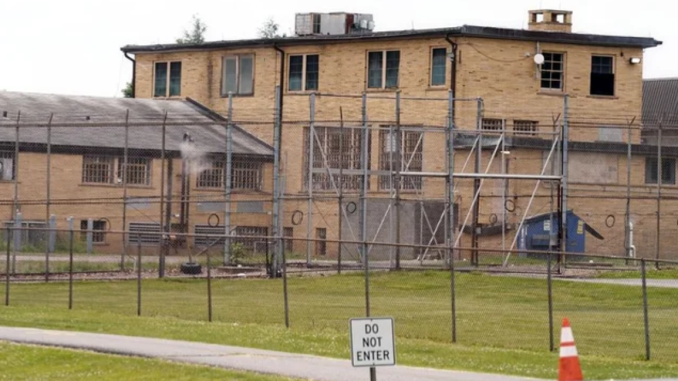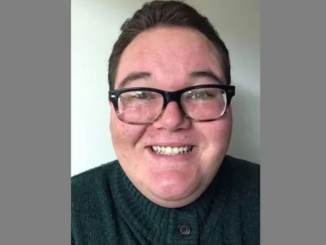
Last year, the New Jersey Department of Corrections agreed to house inmates based on their gender identity after being sued by the American Civil Liberties Union. This year, two female prisoners are pregnant.
Now the ACLU is coming under attack for the settlement agreement requiring prison officials to transfer transgender inmates into the Edna Mahan Correctional Facility for Women. Critics say the consequences should have been obvious from the start.
“Twenty-seven men are now incarcerated there alongside 800 females, and under the agreement, surgery isn’t required,” the Women’s Liberation Front (WoLF), which advocates for single-sex prisons, said Tuesday in a statement.
The June 28 settlement said there would be a presumption “that all inmates will be housed in line with their gender identity, rather than their sex assigned at birth,” as shown in the document filed in New Jersey Superior Court.
“If national statistics are anything to go by, it’s likely the majority of those 27 men still have their penises, too,” said WoLF. “So the risk is real that such pregnancies could become the norm, not an aberration, at the Clinton, N.J. facility and others like it.”
Kara Dansky, president of Women’s Declaration International USA, said Tuesday on Fox News’ “Tucker Carlson Tonight” that the story “shoots a hole right through the trope that trans women are women.”
The case comes with the ACLU waging a legal campaign on behalf of transgender and nonbinary inmates to make housing assignments based on gender identity, spurring alarm about the safety threats to female prisoners.
The ACLU of New Jersey pointed to the security issues faced by transgender inmates, who face heightened risk of harassment and assault in men’s facilities.
“The NJDOC policy regarding transgender, intersex, and non-binary people in state prisons reflects best practices to ensure the health, dignity, and safety of people in their custody and is in line with New Jersey’s strong anti-discrimination laws that prevent discrimination and harassment on the basis of gender identity,” the ACLU said in a statement to The Washington Times.
The Department of Corrections confirmed after NJ Advance Media broke the story April 13 that “the two pregnancies resulted from consensual sexual relationships with another incarcerated person.”
“Due to the active nature of the investigation, DOC cannot comment on any specific disciplinary or housing decisions that may be considered in light of these events, however all measures are being taken to ensure the health, safety and security of all individuals at Edna Mahan Correctional Facility,” said DOC spokesperson Chris Carden.
The department did not release the prisoners’ names, but the Justice 4 Demi website said in an April 14 post that transgender inmate Demi Minor, who entered the prison system at age 16, “began sexual relationships with two women, both of which resulted in the pregnancies.”
The post also said that the three inmates have since been placed in “some form of solitary confinement,” and that “Demi alone was given a notice for a hearing for interstate transfer on the pretext that she is a security threat.”
Minor reported experiencing “a lot of punitive actions from correctional staff from them intentionally denying me recreation all the way to them saying I am a ‘predator,’” according to an interview published Wednesday by NJ Advance Media.
The 27-year-old Minor, who pleaded guilty in 2011 to carjacking and manslaughter for killing her foster father, denied being a threat to other inmates, saying that “I chose to love.”
“This response has happened solely because I am a woman who is transgender, and because of this, they view me as a man,” Minor said. “They have engaged in sex stereotyping, by assuming that I am a threat to the women who I had consensual relationships with. This discriminatory logic assumes that I am dangerous simply because of my gender identity.”
Minor also cited loose prison security.
“Everyone is having sex at Edna it’s a sad reality, and the fact that a lady spent several nights in my cell unaccounted for goes to show you how unstructured this prison is,” Minor said in the interview conducted on the JPay app.
New Jersey Gov. Phil Murphy said Monday at a press conference he had been briefed on the situation, “and it’s among the many reasons why I’ve ordered Edna Mahan to be closed.”
In June, he announced he would shutter the facility, the state’s only women’s prison, and transfer inmates to new prisons or open other prisons.
“Part of the reason to close it — there are many, sadly — is the inability to segregate populations based on incidents or behaviors,” said Mr. Murphy, a Democrat.
The ACLU has filed lawsuits on behalf of transgender inmates in other states, including Illinois, where the organization won a 2021 court victory requiring prison officials to follow through on prisoner requests for hormone therapy and transfers to facilities “matching his or her expressed gender.”
States also have moved to accommodate transgender prisoners. Since 2018, Maine, Connecticut and California have passed laws requiring prisons to make housing assignments consistent with gender identity.
Last month, Washington Gov. Jay Inslee signed into law a bill limiting the release of information about transgender inmates.
President Biden also has expressed his support for housing prisoners based on gender identity, while women’s groups on the right and left have pushed back.
“Men should not be incarcerated with women — full stop,” said WoLF. “Pregnancies are an inevitable and predictable consequence of housing males with females since a woman cannot get another woman pregnant while a man can. To deny this fact or twist reality does grave disservice to not just women — who WoLF advocates on behalf of – but to their children and society overall.”
Ms. Dansky, the former senior counsel at the ACLU Center for Justice, called for the ACLU Women’s Rights Project to intervene on behalf of female prisoners.
“The ACLU claims to fight for the rights of incarcerated women, many of whom are survivors of domestic and sexual violence,” Ms. Dansky said in an email. “It cannot do that while simultaneously advocating to force incarcerated women to share prison cells with men. Why isn’t the ACLU’s Women’s Rights Project taking a public stand against this?”
The ACLU takes a different view, saying last month that “women’s rights are inextricably linked to the broader fight for gender justice.”
“There are more commonalities than differences in our struggles, and it’s important to be gender inclusive to reflect this reality,” Women’s Rights Project Director Ria Tabacco Mar said in a March 17 statement.
* story by The Washington Times
